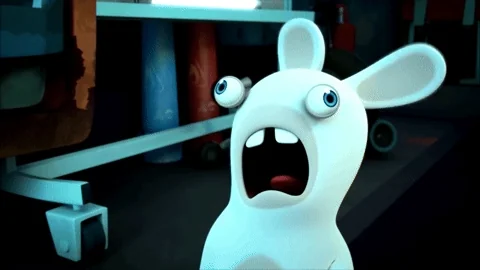Huh, thanks for that! That was definitely not here when I wrote this piece a few days ago.
Yeah. We should also get over another part of that perspective, the idea that letting some (white male) “classics” fall by the wayside as we make way for others does not mean “Hey kids, let’s burn all the classics!!”
Right? There is something to her argument about books resonating with a modern audience. Yes, we can read classics as a way to understand the past, but the best books remain classics, because they have something to say about humanity in general, too. Books are not set in interpretative amber… the best continue to be useful for navigating the modern world, too.
I’ll send in a request to edit it. Based on the research I did earlier this week, the book had in fact been removed already, and I was trying to use this opportunity to better contextualize that decision (i.e., that it was overzealous administrators, not the actual student’s outrage).
That’s what I was thinking. There have been a lot of new books written since 1954, there’s no reason any single novel should stay on the standard reading curriculum forever.
If they were removing the novel from school or public libraries that would be a lot more worrisome.
This reminds me of what became a highly heated argument in a (mostly white) local parenting group about 15-20 years ago. Someone started a conversation about how new books being created for children are so ‘PC’ and they believed in reading only the classics to their children. One example given was that the American Girl historical-fiction books written for each of the historical characters were pablum, whereas the Laura Ingalls Wilder books were a much better choice. So I waded in and started talking about how much racism and religious bigotry there was in books like “Little House on the Prairie”, so maybe re-read the books before deciding whether or not to read them to your children in the 21st century…and that managed to blow everyone up.
I’m not saying that students should be reading American Girl stories in class, but there are excellent books that have been written more recently than the classics that do a better job of presenting both factual history and the diversity of human nature.
A disciple of Ayn Rand
WHAT???

She was, and her daughter was even more so.
Not to mention that Pa is, when stripped of the adoring portrayal by Laura, a complete incompetent who drags his family from one disaster to another. No wonder she went Objectivist.
And far from being a story of rugged self-sufficiency, the family was literally given free land by the Federal government which murdered and/or exiled the indigenous inhabitants to make room for people like them to move in. Yay for small government, right?
And if anything, the contrast between the real events and their fictionalised versions show why Lord of the Flies and a number of other books aimed at children miss the mark. They’re presented as cautionary tales for young readers, but they’re actually aimed at adult fears- in particular, the fear that these children are now growing up and passing into a new stage of their lives. “You need us” these books cry. “You’ll fail without us. You need us to tell you what to do. Don’t grow up and leave us.”
It’s small government when it helps white people, but big government when it helps POC… /s
The family were Mayflower descendents, who had already taken free land by definition, who were given even more free land, and fucked that up as well.
Rugged individualism, everybody
I’d love to hear about the great new books that are being added to curriculums when old books are taken out.
Are you sure? Haven’t you heard what Toni Morrison’s Beloved can do to a child’s precious mind and heart? 
My children are grown, so I’d have to do quite the historical search through my (computer) files to remind myself of all of the books they read in class that were written after I’d become an adult. But I can assure you that they still talk about the power of what they read, and sought out other books by the same authors, and continue the lifetime education started by reading those ‘alternatives’.
The kids are alright, and the books they are reading are part of the reason why.
Has any life of rugged self-sufficiency in the wilderness ever not been built on a foundation of ethnic cleansing and colonial settlement?
The idea that Lord of the Flies is being taught in middle schools-to seventh grade kids- astonishes me. This book was not written for children. Too many books that happen to have adolescents as characters are now seen as being written for and appropriate for readers who are way too young to understand them.
Despite the creation of Young Adult fiction as a marketing tool, thinking that just because the characters in the book are of a certain age range it’s readers should be of the same age range is idiotic.
Also, whether or not it conforms to a particular historical event is meaningless. It’s a novel.
To say “we don’t need to read Shakespeare, Shakespeare has nothing to say to us” is to show just how little you understand about relating literature to real life. Because otherwise, there would be no value in my reading books that weren’t about middle aged white women. Plenty of the current reading lists do need reexamination, but this student was engaging in the hyperbole of youth.
Has any life of rugged self-sufficiency in the wilderness ever not been built on a foundation of ethnic cleansing and colonial settlement?
Nope, because the myth of rugged self-sufficiency exists AS a powerful myth because it denies and supplants the realities of genocidal modes of exploitation.
(And I do realize that your q is a rhetorical one.)